Not recd as per Picture on Website
Available 24/7
Available 24/7
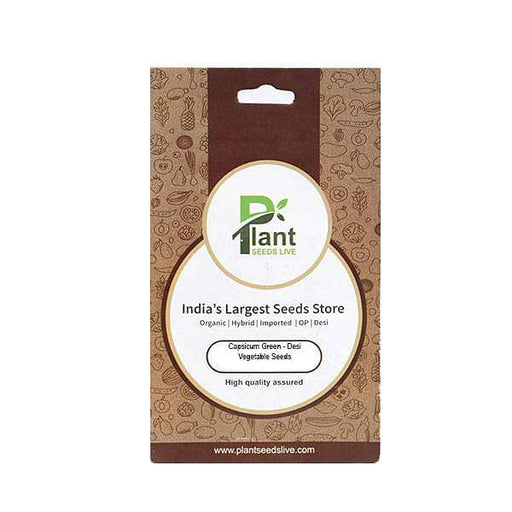
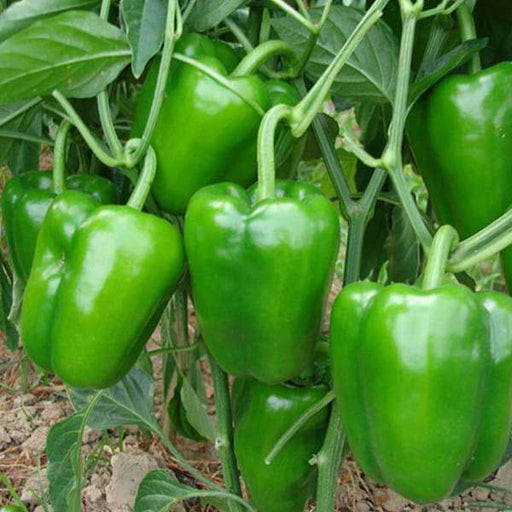 Save 25%
Save 25%
Capsicum Green - Desi Vegetable Seeds Capsicum Green, also known as bell pepper, is a vibrant and nutritious addition to your garden. Thes...
View full details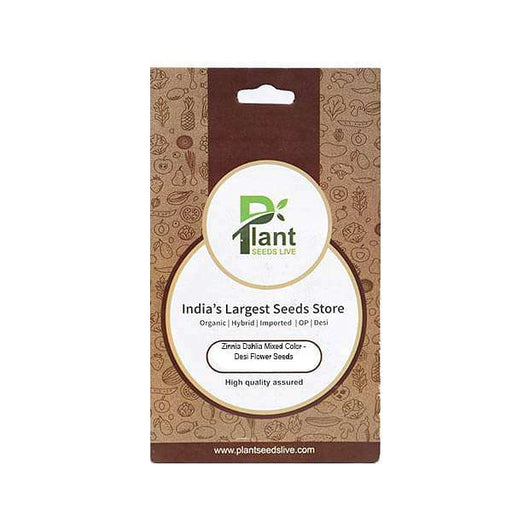
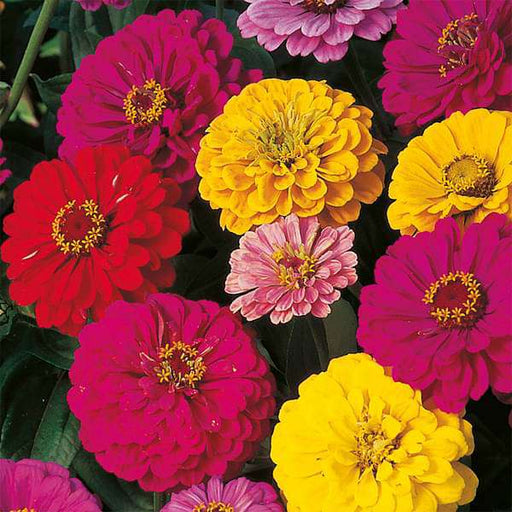 Save 25%
Save 25%
Zinnia Dahlia Mixed Color - Desi Flower Seeds Transform your garden into a vibrant tapestry of colors with our Zinnia Dahlia Mixed Color -...
View full details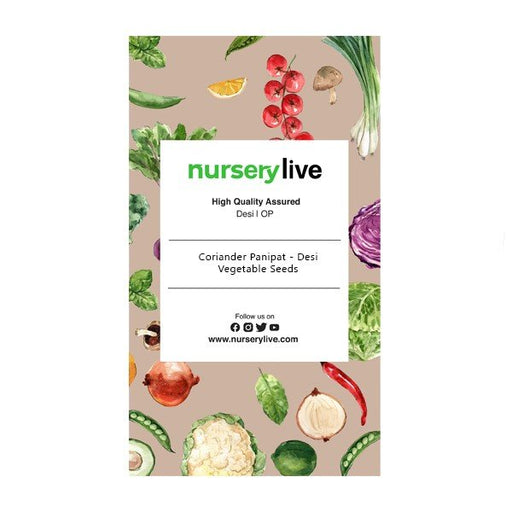
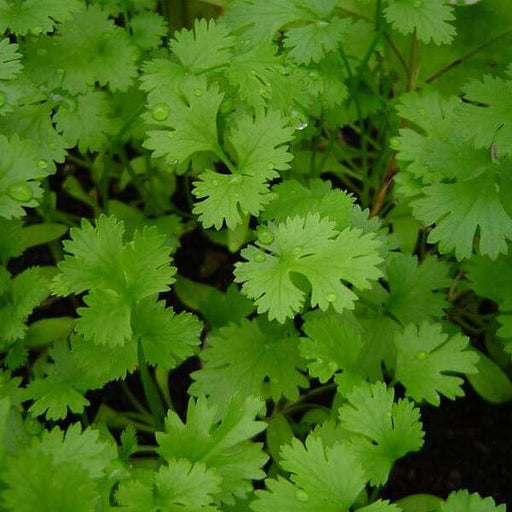 Save 25%
Save 25%
Coriander Panipat - Desi Vegetable Seeds Coriander Panipat is a premium variety of coriander seeds, cherished for its aromatic leaves and ...
View full details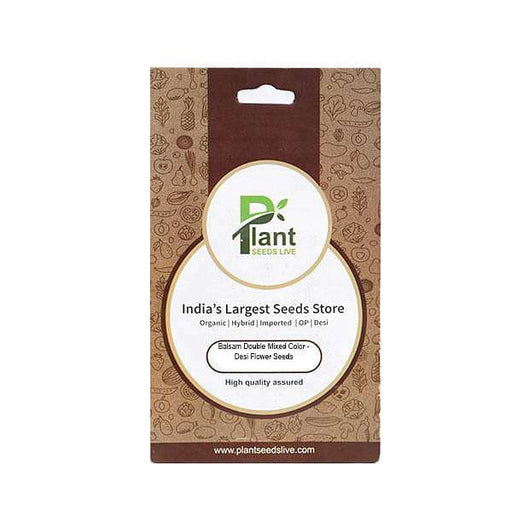
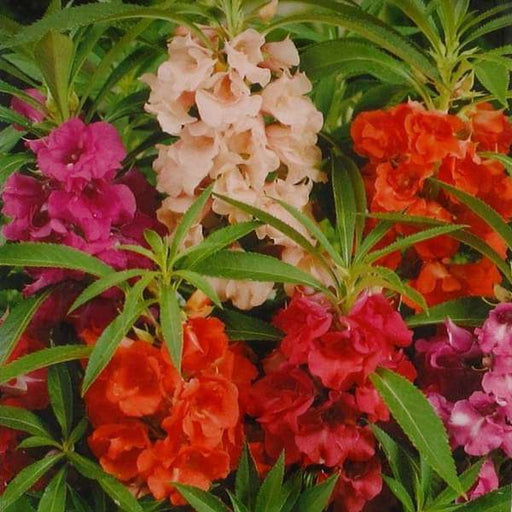 Save 25%
Save 25%
Balsam Double Mixed Color - Desi Flower Seeds Discover the vibrant beauty of Balsam Double Mixed Color - Desi Flower Seeds, a delightful a...
View full details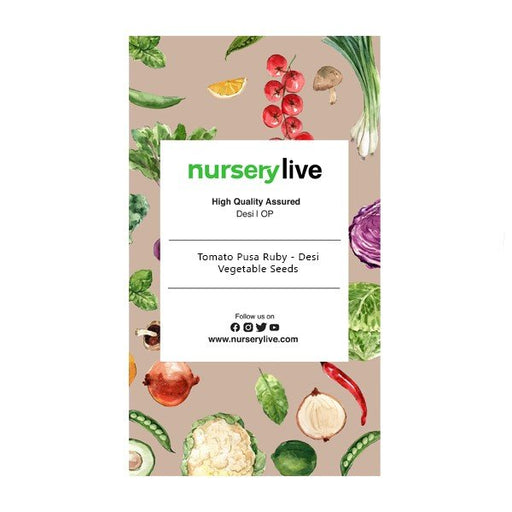
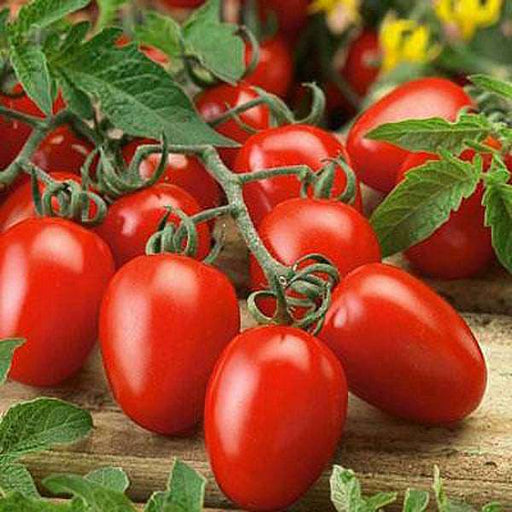 Save 25%
Save 25%
Tomato Pusa Ruby - Desi Vegetable Seeds The Tomato Pusa Ruby is a premium variety of tomato seeds, renowned for its vibrant red color, jui...
View full details
 Save 25%
Save 25%
Cherry Tomato, Cherry Tomato Honey - Vegetable Seeds Discover the delightful world of Cherry Tomato Honey seeds, perfect for home gardener...
View full details
 Save 25%
Save 25%
Spinach All Green - Desi Vegetable Seeds Introducing the Spinach All Green - Desi Vegetable Seeds, a premium variety of spinach that thriv...
View full details
 Save 35%
Save 35%
Best 6 Plants for Perfect Indoor Garden Transform your living space into a lush oasis with our curated collection of the Best 6 Plants for a...
View full details
 Save up to 50%
Save up to 50%
Mini Succulent Garden Pack Transform your space with our Mini Succulent Garden Pack, featuring a delightful collection of 4 any variety beautiful s...
View full details
 Save 30%
Save 30%
5 Best Fragrant Plants Transform your garden or indoor space into a fragrant paradise with our curated selection of the 5 Best Fragrant Plants. Th...
View full details
 Save 24%
Save 24%
Set of 2 Bonsai Looking Grafted Adeniums Transform your indoor or outdoor space with our exquisite Set of 2 Bonsai Looking Grafted Adenium...
View full details Save 45%
Save 45%
Top 4 Die Hard Succulents Pack Transform your indoor or outdoor space with our Top 4 Die Hard Succulents Pack, featuring a curated selecti...
View full details
 Save 30%
Save 30%
5 Best Indoor Plants Pack Transform your living space into a lush oasis with our '5 Best Indoor Plants Pack.' This carefully curated collection fe...
View full details
 Save 25%
Save 25%
Set of 4 Evergreen Air Purifier Plant Pack Transform your indoor space into a lush, green oasis with our Set of 4 Evergreen Air Purifier Pla...
View full detailsWelcome to our 'Seeds Review' collection, where we bring you a curated selection of high-quality seeds for every gardening enthusiast. Whether you're a novice or a seasoned gardener, our collection features a diverse range of seeds, including vegetables, herbs, and flowers, all designed to thrive in various climates. Each seed variety is carefully selected for its unique characteristics, ensuring you have the best options for your gardening needs.
What makes our 'Seeds Review' collection special is our commitment to quality and sustainability. We prioritize seeds that are non-GMO and sourced from reputable growers who practice environmentally friendly farming methods. This means you can cultivate your garden with confidence, knowing that you're contributing to a healthier planet while enjoying the fruits of your labor.
In addition to providing you with top-notch seeds, we also offer comprehensive growing and care instructions. Our goal is to empower you with the knowledge needed to successfully nurture your plants from seed to harvest. Explore our collection and discover the joy of gardening with seeds that are not only easy to grow but also yield bountiful results.
Seeds have played a crucial role in human history, serving as the foundation for agriculture and food security. The domestication of plants began over 10,000 years ago, leading to the development of various crops that sustain populations worldwide. Today, the preservation of heirloom and native seed varieties is vital for maintaining biodiversity and resilience in our food systems.
From an environmental perspective, growing your own plants from seeds can significantly reduce your carbon footprint. Home gardening promotes local ecosystems, supports pollinators, and encourages sustainable practices. By choosing seeds that are adapted to your local climate, you can contribute to a healthier environment while enjoying the many benefits of gardening.
Starting your own garden can be an exciting and rewarding experience. However, for beginners, it can be difficult to know where to start. The best seeds for beginners are those that are easy to grow and maintain. Look for seeds that require minimal attention and have a short germination period.
Organic seeds are grown without the use of synthetic pesticides or fertilizers. This ensures that the seeds are free from harmful chemicals, making them healthier for you and the environment. Choosing organic seeds is a great way to support sustainable agriculture and reduce your exposure to harmful chemicals.
Heirloom seeds are seeds that have been passed down from generation to generation, usually within a family or community. These seeds are open-pollinated and have not been genetically modified. Heirloom seeds offer unique flavors, colors, and textures that you won't find in commercially available produce.
Seed banks are facilities that store seeds in order to preserve genetic diversity. They are important for maintaining plant biodiversity and protecting against the loss of valuable genetic resources. Seed banks can also be used to provide seeds to farmers and gardeners in times of need.
Seed catalogs are an important resource for gardeners and farmers. They provide detailed information about different seed varieties, including their growth habits, disease resistance, and yield potential. Seed catalogs can be a great way to discover new and interesting seed varieties to try in your garden.
Starting seeds indoors can be a great way to get a jump start on your garden. It allows you to extend your growing season and gives you more control over the growing conditions. When starting seeds, it's important to provide them with the right amount of light, water, and nutrients.
Seed saving is the process of collecting and storing seeds from your own plants. This allows you to save money on seeds and maintain genetic diversity in your garden. When saving seeds, it's important to select healthy plants and properly store the seeds to ensure their viability.
Seed germination is the process of a seed sprouting and growing into a plant. The key factors in seed germination are moisture, temperature, and oxygen. It's important to provide the right conditions for seed germination to ensure successful plant growth.
Seed starting mix is a specially formulated soil mix designed for starting seeds. It provides the right balance of nutrients, moisture retention, and drainage to ensure successful seed germination. When selecting a seed starting mix, look for one that is sterile and free from contaminants.
Hybrid seeds are created by cross-breeding two different plant varieties. They offer unique characteristics such as disease resistance, increased yield, and improved flavor. However, they cannot be saved for future use as the resulting plants will not produce the same characteristics.
Non-GMO seeds are seeds that have not been genetically modified. They offer the same benefits as organic seeds but are not necessarily grown without synthetic pesticides or fertilizers. Choosing non-GMO seeds is a great way to support sustainable agriculture and reduce your exposure to genetically modified organisms.
Rare seeds are seeds that are not commonly available in seed catalogs or nurseries. They offer unique flavors, colors, and textures that are not found in commercially available produce. Choosing rare seeds is a great way to try something new and support plant biodiversity.
Vegetable seeds are seeds that grow into edible plants such as tomatoes, peppers, and cucumbers. When selecting vegetable seeds, it's important to consider the growing conditions in your area and the specific needs of each plant variety.
Flower seeds are seeds that grow into a variety of beautiful and colorful blooms. When selecting flower seeds, it's important to consider factors such as sunlight requirements, soil type, and bloom time. Flowers can be a great way to add color and interest to your garden.
Herb seeds are seeds that grow into plants that are used for culinary or medicinal purposes. Popular herb seeds include basil, rosemary, and thyme. When selecting herb seeds, it's important to consider the growing conditions in your area and the specific needs of each plant variety.
Microgreens are small, immature plants that are harvested when they are only a few inches tall. They offer a concentrated source of nutrients and can be grown indoors year-round. When selecting microgreen seeds, it's important to look for varieties that are quick-growing and have a mild flavor.
Proper seed storage is important for maintaining the viability of your seeds. Seeds should be stored in a cool, dry place to prevent moisture buildup and mold growth. It's also important to label your seeds with the variety and the date they were harvested.
Once your seeds have sprouted, it's important to provide them with the right care to ensure successful plant growth. This includes providing the right amount of light, water, and nutrients, as well as protecting them from pests and disease.
Seed starting containers are used to hold soil and seeds during the germination process. They can be made from a variety of materials such as plastic, peat moss, or paper. When selecting seed starting containers, it's important to consider factors such as drainage, size, and durability.
Seed propagation is the process of growing new plants from seeds. It's an important skill for gardeners and farmers as it allows you to maintain genetic diversity in your garden and save money on seeds. When propagating seeds, it's important to follow the proper techniques for each plant variety to ensure successful plant growth.
Answer: When choosing seeds for your garden, it is important to consider the climate, soil type, and sunlight conditions in your area. You can also research online and read reviews from other gardeners to determine which seeds are best suited for your needs.
Answer: Hybrid seeds are produced by crossbreeding two different varieties of plants to create a new variety with specific characteristics. Open-pollinated seeds, on the other hand, are produced by pollination from natural sources like wind or insects. Hybrid seeds generally produce more consistent and uniform plants, while open-pollinated seeds offer more genetic diversity.
Answer: Heirloom seeds are seeds that have been passed down through generations of gardeners and are often hundreds of years old. They are popular because they offer unique and diverse varieties of plants that are not commonly found in commercial seed catalogs.
Answer: Seeds should be stored in a cool, dry place in an airtight container. You can also store them in the refrigerator or freezer to extend their shelf life.
Answer: The shelf life of seeds varies depending on the type of seed, but most seeds will remain viable for 1-3 years if stored properly.
Answer: At Nurserylive, we guarantee a minimum of 70% germination rate for all of our seeds.
Answer: Yes, all of our seeds are non-GMO and organic.
Answer: Yes, if your seeds do not germinate, you can return them within 15 days for a refund or exchange.
Answer: Yes, we offer international shipping to select countries.
Answer: Yes, you can track your order by logging into your account on our website.
Answer: Yes, we offer bulk discounts on select seed varieties.
Answer: Yes, we offer seeds in smaller quantities as well as larger bulk quantities.
Answer: The germination time varies depending on the type of seed, but most seeds will germinate within 7-14 days.
Answer: Yes, many of our seed varieties can be grown indoors in containers.
Answer: It is important to keep the soil moist but not waterlogged. Water your seeds regularly, but be careful not to overwater them.
Answer: The best time to harvest your plants will depend on the specific variety. You can research online or consult a gardening guide for specific instructions.
Answer: Yes, many plants produce seeds that can be saved and used for future plantings.
Answer: Yes, many of our seed varieties can be grown in hydroponic systems.
Answer: Yes, all of our seeds are non-GMO.
Answer: Yes, we have a team of gardening experts who can provide advice and answer any questions you may have about gardening and our products.